
Whenever a film or play is written, directed, and starred in by a single person (call him or her “X”), my mother used to say, “…and also with songs by X, cinematography by X, and so on.” It was her way of saying it’s a pure vanity project. Now, years later, I can honestly say that not all vanity projects are bad projects—it all depends on who “X” is. For example, Citizen Kane. I’m sure you can think of others. Such projects can be quirky, as any fan of, say, Quentin Tarantino or David Lynch can tell you; such projects (some say “director as auteur”) can range from unintelligible to absolutely mesmerizing. Well, The Blue Rose was written and directed—and starred in—by George Baron. And here’s the kicker (Mom was right!): at the end, there’s a song written and sung by… you guessed it! George Baron!
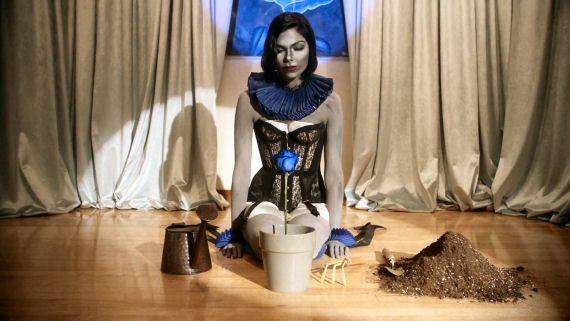
Ostensibly it’s a “noir fantasy/horror” movie; we were intrigued by the description “Follows two rookie detectives who set out to solve a homicide, but end up in an alternate reality made up of their worst nightmares.” Well, Lynne and I are both noir fans, science fiction fans, and at least I am a horror fan (Lynne can stand some horror, but not when it turns really gruesome). So it sounded good to us.
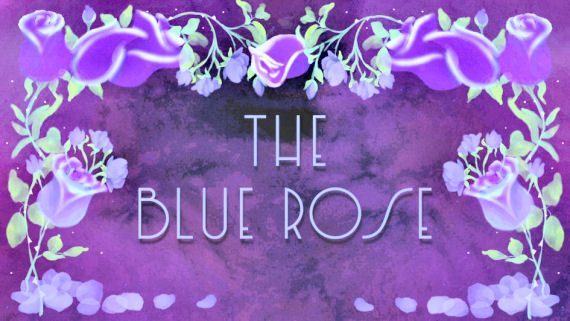
As fans of director David Lynch might know, the title is a direct reference to Lynch. In fact, it appears that the whole movie is intended as either an homage to, or an attempt to imitate said director. The trouble is, there’s a fine line between homage and imitation, and another line between homage and parody. This particular film treads those lines, but not terribly well in any direction. I put this down to George Baron, partly because he started this film (according to Wikipedia) when he was 18; and at 18, one hasn’t really learned discrimination.
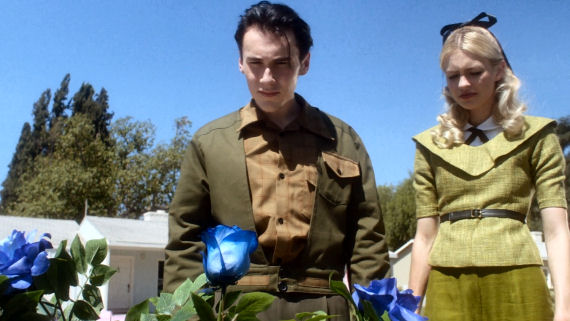
This is not to say that the film is on the same level as, say, a Bert I. Gordon fantasy or “sci-fi” film like The Magic Sword or The Amazing Colossal Man. In fact, I’d say that in terms of pure film, either of the aformentioned epics would be better written and acted. (Forgive me; I grew up in the ‘50s and ‘60s, and names that were known for producing bad genre films were people like Gordon and Roger Corman, who at least did a few really good films, like The Masque of the Red Death.) In fact, The Amazing Colossal Man was in many ways miles ahead of The Blue Rose. If you’re doing a vanity project—in film, at least—it probably helps to have some talent; here George Baron shows little of that.
I know I said I wouldn’t do “killer” reviews unless the film really ticked me off; well, as a fan of David Lynch myself, I have to say that George did. For the most part, if you watch, say, Twin Peaks, you have a sense that there’s an underlying method to Lynch’s madness, from the dwarf who speaks backwards to Lil the Dancer (Kimberly Ann Cole), whose red dress and wig and strange facial expressions and dance were a secret FBI code devised by FBI Chief Gordon Cole (David Lynch)—but a few of them, like the white horse, never really came to anything. The Blue Rose attempts a Twin Peaks-like set of odd clues, like the three rabbit-masked thugs in the hospital, but nothing really comes of them.
The plot (such as it is) is this: the movie is set in the 1950s, where two rookie LAPD “detectives” (one is the son of an LAPD higher-up, played briefly by Twin Peaks’s Ray Wise, and the other is a woman; neither one seems to have police IDs, weapons, or training in even elementary crime-fighting) attempt to solve a murder. They begin at a typical 1950s white-picket-fenced, rose-covered cottage (okay, a typical suburban bungalow), only the roses here are blue. But they don’t grow that way; they’re painted blue. Detective Dalton, played by George Baron, wants to be the leading partner of this duo; Detective Lilly, played by Olivia Scott Welch (and who drives a pink 1956-ish Ford Thunderbird Convertible—shades of Barbie!) seems to be the brains, such as they are, of this outfit. They encounter strange people, like the blonde singer played by Glüme Harlow in the Red Bloom Nightclub (obviously meant to echo the cafe/nightclub in Twin Peaks), the wife cum widow/murderer Sophie (Nikko Austen Smith) who dances around her kitchen making pies (cherry, obviously, to any Twin Peaks fan) and who then kills her philandering husband with the pie-cutting knife, and so on. Oddly enough, the neighbours seem okay with the fact that she’s black and he’s white, though that kind of marriage would be definitely frowned on in the ‘50s. My mother, back in the ‘60s, would sometimes remark that she was afraid the marriage of Sammy Davis, Jr. and May Britt was not a good thing, because of the discrimination the children would face. And she was pretty liberal for her age. So the marriage in this movie is an odd thing in a movie full of odd things. (Me, I never really cared—if someone loves someone else, who cares who they are or what they are? Not anyone else’s business, I’ve always said.)
Although the sets are well made and the costumes ditto, the whole thing finally collapses of its own weight just before the ending, which involves Dalton meeting a feminine version of himself—or maybe that is Dalton cross-dressing; I’m not sure of the latter. If I were to rate this movie, I’d probably be charitable and give it one and a half stars or whatevers, The “one” would be for attempting to praise/mimic Lynch, the “half” would be for its success, or lack thereof.
I’d be pleased if anyone wants to comment on this column. You can comment here or on Facebook, or even by email (stevefah at hotmail dot com). All comments are welcome, pro or con. My opinion is, as always, my own, and doesn’t necessarily reflect the views of Amazing Stories or its owner, editor, publisher or other columnists. See you next time!
Steve has been an active fan since the 1970s, when he founded the Palouse Empire Science Fiction Association and the more-or-less late MosCon in Pullman, WA and Moscow, ID, though he started reading SF/F in the early-to-mid 1950s, when he was just a sprat. He moved to Canada in 1985 and quickly became involved with Canadian cons, including ConText (’89 and ’81) and VCON. He’s published a couple of books and a number of short stories, and has collaborated with his two-time Aurora-winning wife Lynne Taylor Fahnestalk on a number of art projects. As of this writing he’s the proofreader for R. Graeme Cameron’s Polar Borealis and Polar Starlight publications. He’s been writing for Amazing Stories off and on since the early 1980s. His column can be found on Amazing Stories most Fridays.




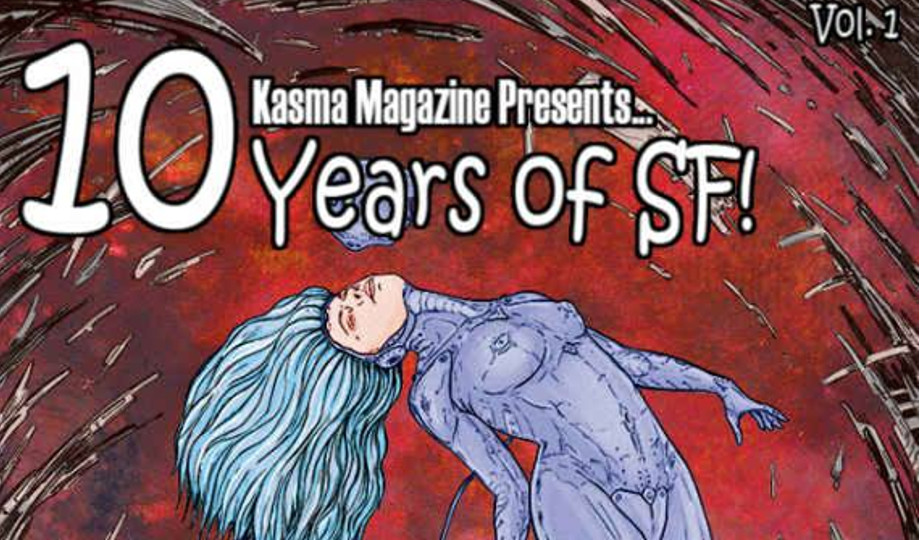

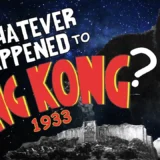
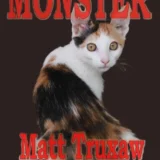


Recent Comments